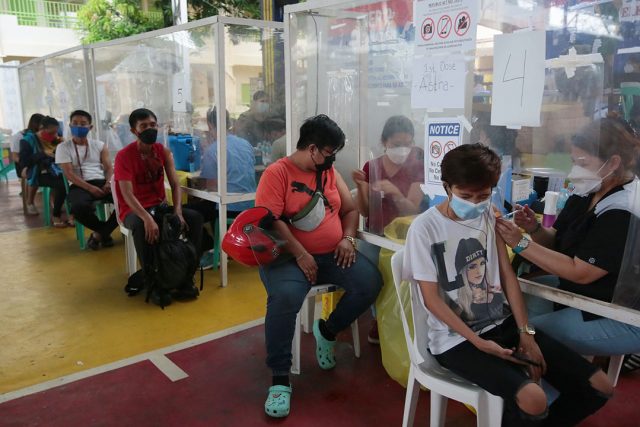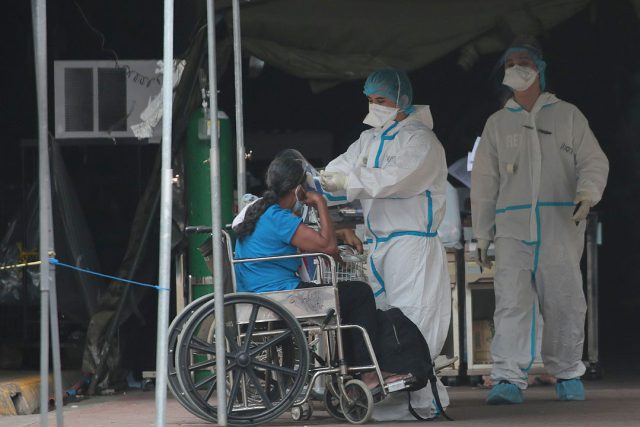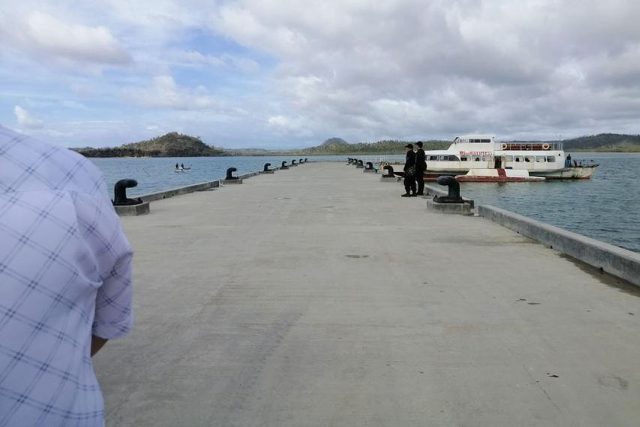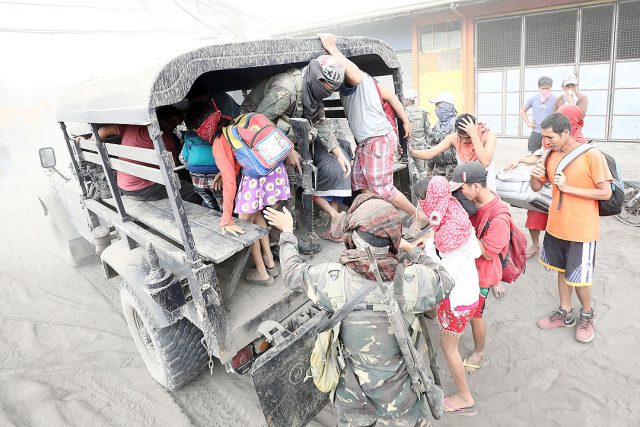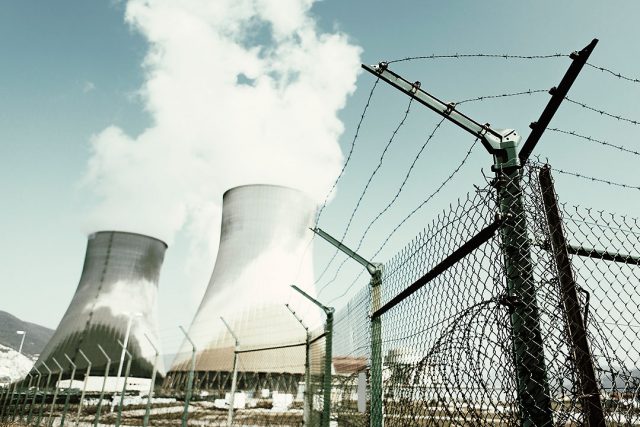(Last of two parts)
A host of reasons explains the long-term dip in nuclear construction. The Chernobyl accident in 1986 put most projects on hold as regulators reassessed the safety of operations. Many were later scrapped. Then, in the 1990s, as privatization swept the electricity sector, new owners sweated their (often lavish) endowment of assets rather than invest in new plants. What they did build tended to be gas power stations, taking advantage of the surge in cheap and secure (if now depleted) North Sea gas. As nuclear programs ended and supply chains withered, the costs of getting back into the nuclear game rose.
“Politicians have not yet grasped the scale of the problems they have created by failing to think ahead,” says Yves Desbazeille, chief executive of Foratom. His organization estimates that just maintaining nuclear’s proportion of power at today’s levels by 2050 requires the construction of 113 gigawatts on top of the 7.8 gigawatts under construction today. That essentially means replacing everything that currently exists in just two decades.
Restarting the nuclear industry is not the work of a moment, Desbazeille warns. “It takes a long time to set up a program. You have to get the design, license it, find the sites where you can start building.” The high costs and overruns associated with the few existing projects come from the fact they are “first of a kind” designs after decades of inertia.
That’s why Britain’s Hinkley Point project will produce power priced at £92.50 per megawatt-hour in 2012 money — a price that compares unfavorably with the latest UK offshore wind projects, which have come in at below £40 per megawatt-hour.
Nuclear’s payback only comes when countries build a fleet of similar reactors, creating the supply chain that allows for consistent delivery and drives down costs. For instance, South Korea has built reactors programmatically since the 1980s, which is why its costs are close to $2,000 to $4,000 per kilowatt, compared to $8,000 for the UK’s last completed one-off project, Sizewell B, in the 1990s, according to research by the Energy Technologies Institute. Simplification of design and smaller modular designs that can be factory-built might drive down costs further.
Certainty about policy is especially important to reduce the cost of capital, critical in an industry where huge sums are required upfront. Financing represents around 70% of the cost of nuclear per megawatt-hour. Ironically, countries that exit their nuclear programs, like Belgium and Germany, make it harder for those that wish to stay in.
Reigniting investment will not be easy. Many in the industry believe that it will require a level of political engagement not seen since France’s 1970s Messmer plan (conceived after the 1973 oil shock), which created the 58-strong reactor fleet that largely survives today. There are signs that some acknowledge the challenge. Britain’s Prime Minister Boris Johnson and France’s President Emmanuel Macron have both given speeches in the past month calling for a renewal of nuclear investment — the latter signaling a reversal of his predecessor’s plan to cut France’s nuclear output from 70% to 50% of its electricity. A number of central European countries — notably Poland — are planning investments, albeit driven as much by fear of dependence on Russia for gas as by any longer-term climate goal.
But nothing is simple in nuclear politics. If renewal is to happen, many think nuclear must be included in the EU’s “taxonomy” — which classifies energy sources as “green” for investment purposes. However, divisions in the bloc mean that is far from certain. Germany, for instance, has gathered support from Austria, Denmark, Luxembourg, and Spain to oppose such a move.
Ultimately, much depends on whether new nuclear is seen as vital in the battle to reduce emissions. Some think not. Mycle Schneider, editor of the World Nuclear Industry Status Report and a noted critic of the industry, argues that, aside from its cost, nuclear simply takes too long to build in the few years we have available to decarbonize.
“Every euro invested in new nuclear power plants makes the climate crisis worse because now this money cannot be used to invest in efficient climate protection options,” he has said.
Nuclear proponents say the costs of ignoring it could be higher. The only zero-carbon alternatives are carbon capture, which has yet to be proved at scale, and renewables, which pose as-yet-unsolved intermittency problems. Desbazeille is skeptical that variability can be solved by storage technology. “It is a fairy tale that we are building enough storage to back up renewables,” he says. “In total there is just 24 minutes of storage in the EU.”
*****
If politicians are to be convinced to back nuclear, Paul Bossens thinks public opinion must endorse it, too. After a decade on the road with his presentation, he feels the mood is now changing, perhaps impelled by the hard choices of the climate debate.
“The majority of the population is not against nuclear as a solution to the climate, but they are afraid to say it,” he says. “There’s still a lot of social pressure against it, and if you say you are pro, the loudest voices still say: ‘You are a bad guy, it is dangerous.’”
Recent polls in Belgium give some credence to this claim. A survey by broadcaster RTL in September showed 47% of Belgians are against the phaseout and only 30% favor it. A majority favor keeping nuclear in the energy mix. Germany has seen similar results — albeit with a majority, if a narrowing one, still favoring the phaseout.
Pro-nuclear activism may be a minority activity — Bossens’ pressure group 100 Terawatt Hours (a reference to Belgium’s annual electricity consumption) counts its membership in dozens, not thousands. But he thinks it’s a force multiplier having non-industry participants speaking up in favor of atomic power.
“People always assume anyone pro-nuclear must be funded by the industry,” he says. “When you tell them you are just a private citizen, they almost fall off their chair.”
The pro-nuclear movement is morphing in other ways, too. Historically, it has tended to put its case dryly, as if arguing on the facts alone is the way to change people’s minds. Appeals to emotion have been left to its opponents. Now organizations such as Mothers for Nuclear, a group founded by two nuclear workers in the US but with a base in Europe, seek explicitly to appeal to feelings as well as reason.
It presents nuclear’s dense energy output (the factor that keeps its physical footprint small) as a pro-nature choice, helping to preserve pristine landscapes and habitats for future generations. “We think it’s possible to be positive about both nature and humanity,” says its European director, Iida Ruishalme, a Finnish cell biologist who lives in Switzerland. “We want our children and their children to have the energy to lead a fulfilling life.”
It is a bold turnaround, associating nuclear with nature in this way. Early anti-nuclear movements grew out of another mothers’ movement, Women Strike for Peace, whose opposition to atmospheric testing was that atomic fallout was poisoning their children. When Rachel Carson published her seminal environmentalist tract Silent Spring in 1962, she located her motivation for investigating humankind’s “tampering” with nature in the development of atomic science.
Going from believing nuclear is dangerous to thinking that it’s vital is a big jump. And proponents don’t have that long to convince the public. Every day brings nuclear power’s ultimate demise a step closer. And even the most powerful appeals may not be enough to derail Belgium’s phaseout.
On a drizzly day a few weeks ago, on a concourse in front of Brussels Central railway station, Bossens and his colleagues convened a “Stand Up for Nuclear” rally to trumpet their opposition to the phaseout. (Stand Up is a loose coalition of pro-nuclear bodies from around the world convened by the American pro-nuclear campaigner Michael Shellenberger.) A ragged group of about 200 people gathered to listen to short speeches by activists from 11 countries, including the US and South Korea.
Among the speakers was an activist from Finland, Tea Toermaenen. Her frustration was evident. “It is infuriating to see other countries shutting down nuclear plants prematurely when we know that extending the life of existing plants is one of the most cost-effective things we can do for the climate,” she said. “The people of Belgium deserve better leaders. You have been let down.”
BLOOMBERG OPINION

